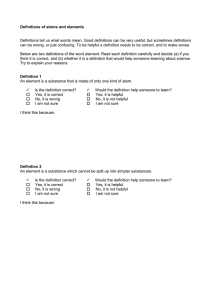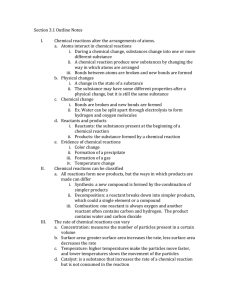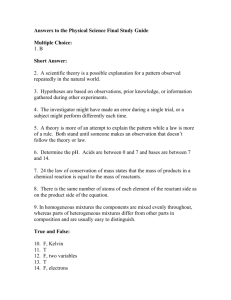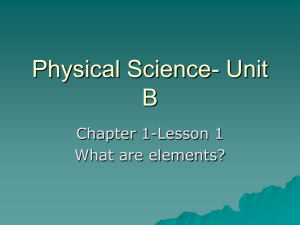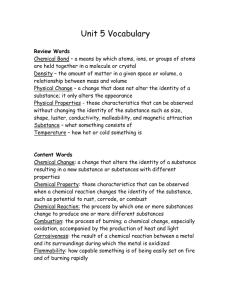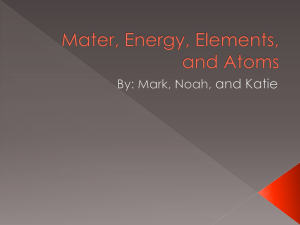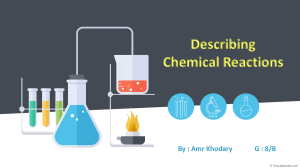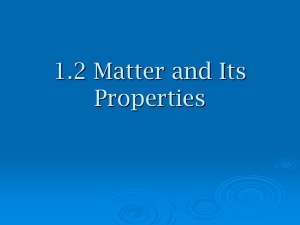test review for unit 1
advertisement
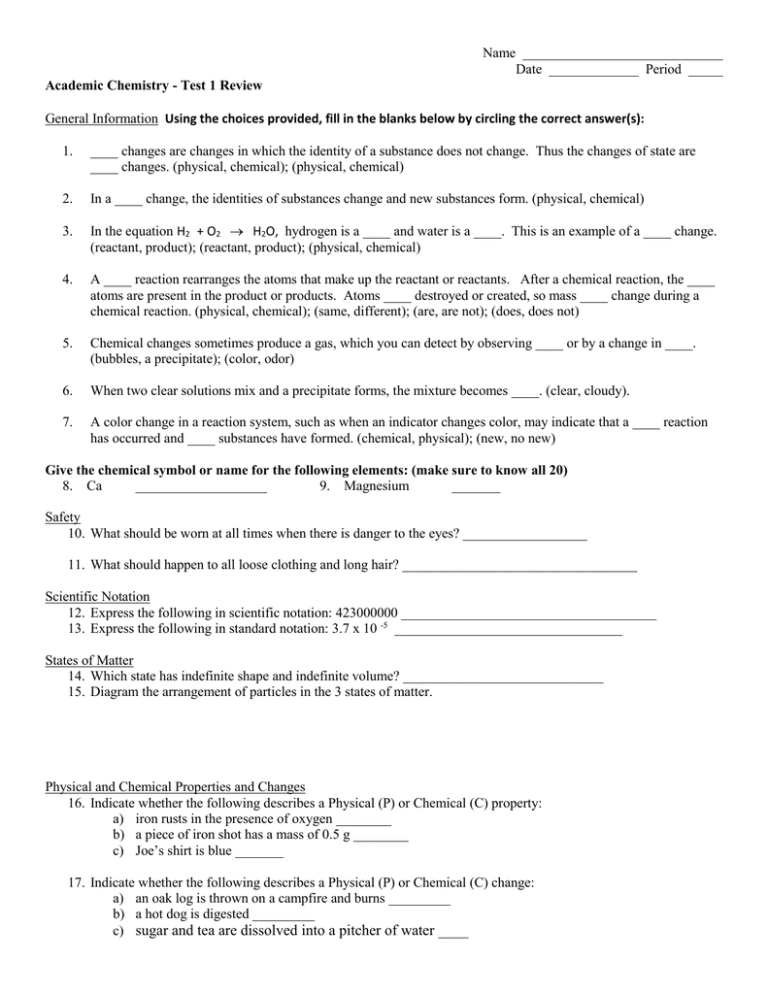
Name _____________________________ Date _____________ Period _____ Academic Chemistry - Test 1 Review General Information Using the choices provided, fill in the blanks below by circling the correct answer(s): 1. ____ changes are changes in which the identity of a substance does not change. Thus the changes of state are ____ changes. (physical, chemical); (physical, chemical) 2. In a ____ change, the identities of substances change and new substances form. (physical, chemical) 3. In the equation H2 + O2 H2O, hydrogen is a ____ and water is a ____. This is an example of a ____ change. (reactant, product); (reactant, product); (physical, chemical) 4. A ____ reaction rearranges the atoms that make up the reactant or reactants. After a chemical reaction, the ____ atoms are present in the product or products. Atoms ____ destroyed or created, so mass ____ change during a chemical reaction. (physical, chemical); (same, different); (are, are not); (does, does not) 5. Chemical changes sometimes produce a gas, which you can detect by observing ____ or by a change in ____. (bubbles, a precipitate); (color, odor) 6. When two clear solutions mix and a precipitate forms, the mixture becomes ____. (clear, cloudy). 7. A color change in a reaction system, such as when an indicator changes color, may indicate that a ____ reaction has occurred and ____ substances have formed. (chemical, physical); (new, no new) Give the chemical symbol or name for the following elements: (make sure to know all 20) 8. Ca ___________________ 9. Magnesium _______ Safety 10. What should be worn at all times when there is danger to the eyes? __________________ 11. What should happen to all loose clothing and long hair? __________________________________ Scientific Notation 12. Express the following in scientific notation: 423000000 _____________________________________ 13. Express the following in standard notation: 3.7 x 10 -5 _________________________________ States of Matter 14. Which state has indefinite shape and indefinite volume? _____________________________ 15. Diagram the arrangement of particles in the 3 states of matter. Physical and Chemical Properties and Changes 16. Indicate whether the following describes a Physical (P) or Chemical (C) property: a) iron rusts in the presence of oxygen ________ b) a piece of iron shot has a mass of 0.5 g ________ c) Joe’s shirt is blue _______ 17. Indicate whether the following describes a Physical (P) or Chemical (C) change: a) an oak log is thrown on a campfire and burns _________ b) a hot dog is digested _________ c) sugar and tea are dissolved into a pitcher of water ____ Classification of Matter 18. Pure substances can be both ___________________ and ______________________. 19. Indicate whether the following are Elements (E), Compounds (C) or Mixtures (M). a) sodium bicarbonate ________ b) tungsten ________ c) german chocolate cake ________ 20. Indicate whether the following mixtures are Homogeneous (HO) or Heterogeneous (HE). a) chocolate chip cookie ________ b) stainless steel ________ c) banana nut bread _______ Density and Measurements 21. What is the formula for density? __________________ 22. What are the units for the following measurements? Mass____ Volume____ Length____ 23. What is the density of an object with a mass of 10 g and a volume of 5 mL? 24. Which object is more dense, assuming they have the same mass? A B 25. If a substance has a density of 25 g/mL, what volume would 5 g of this substance occupy? Conversions 26. Convert: 4.3 1024 atoms of phosphorus to grams 27. How many moles are in a 7 gram sample of boron? 28. Convert: 250 mL to kL
